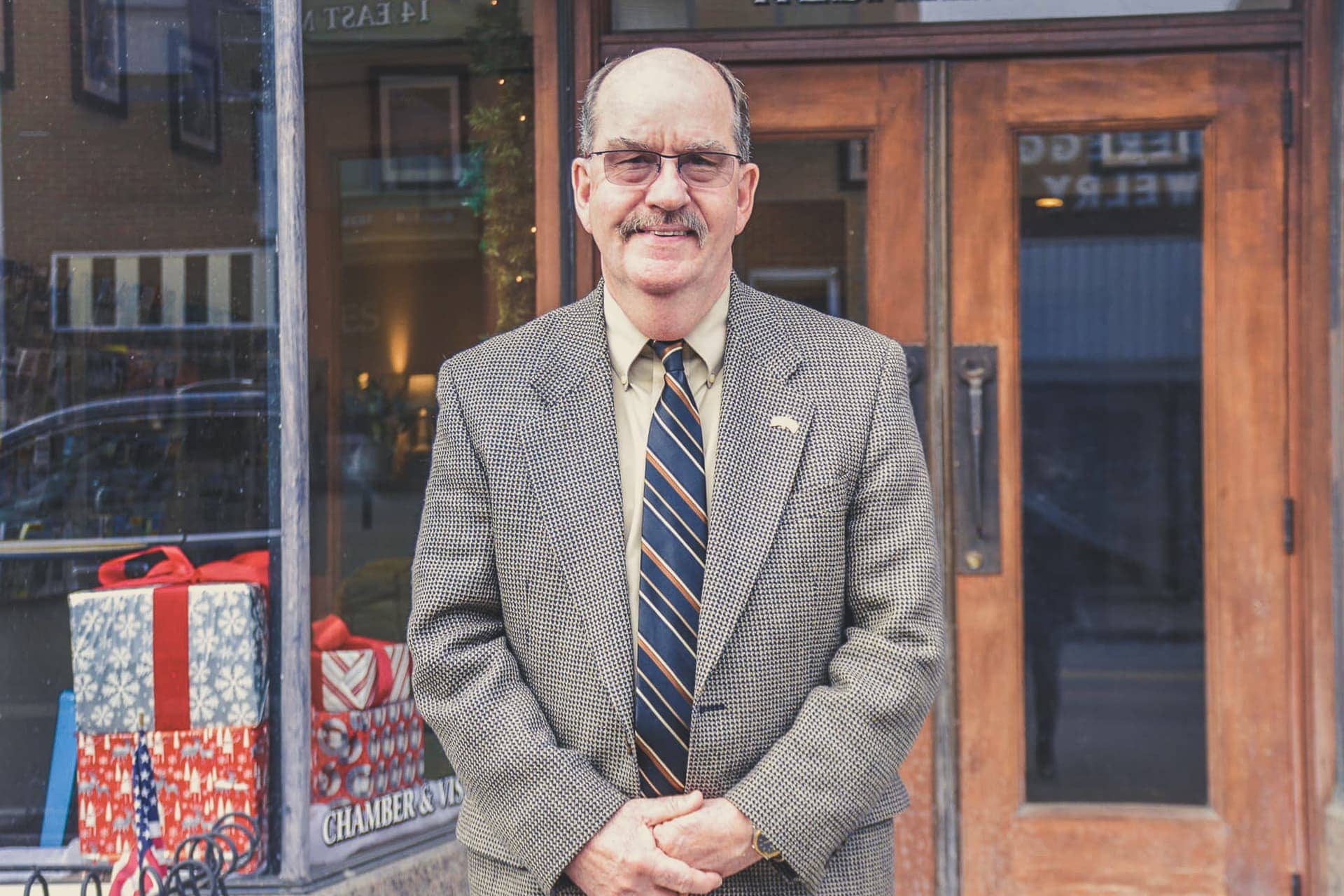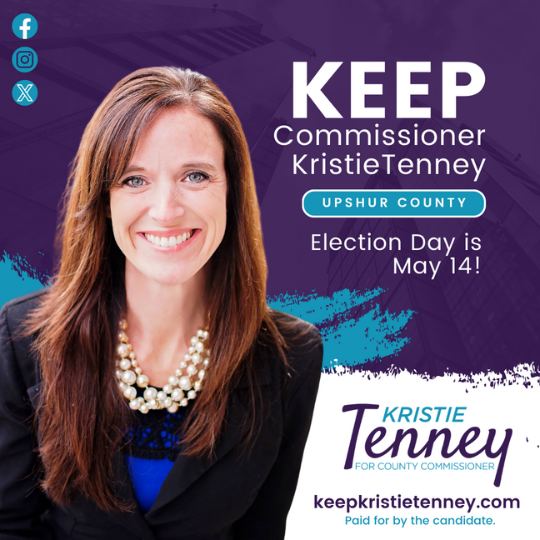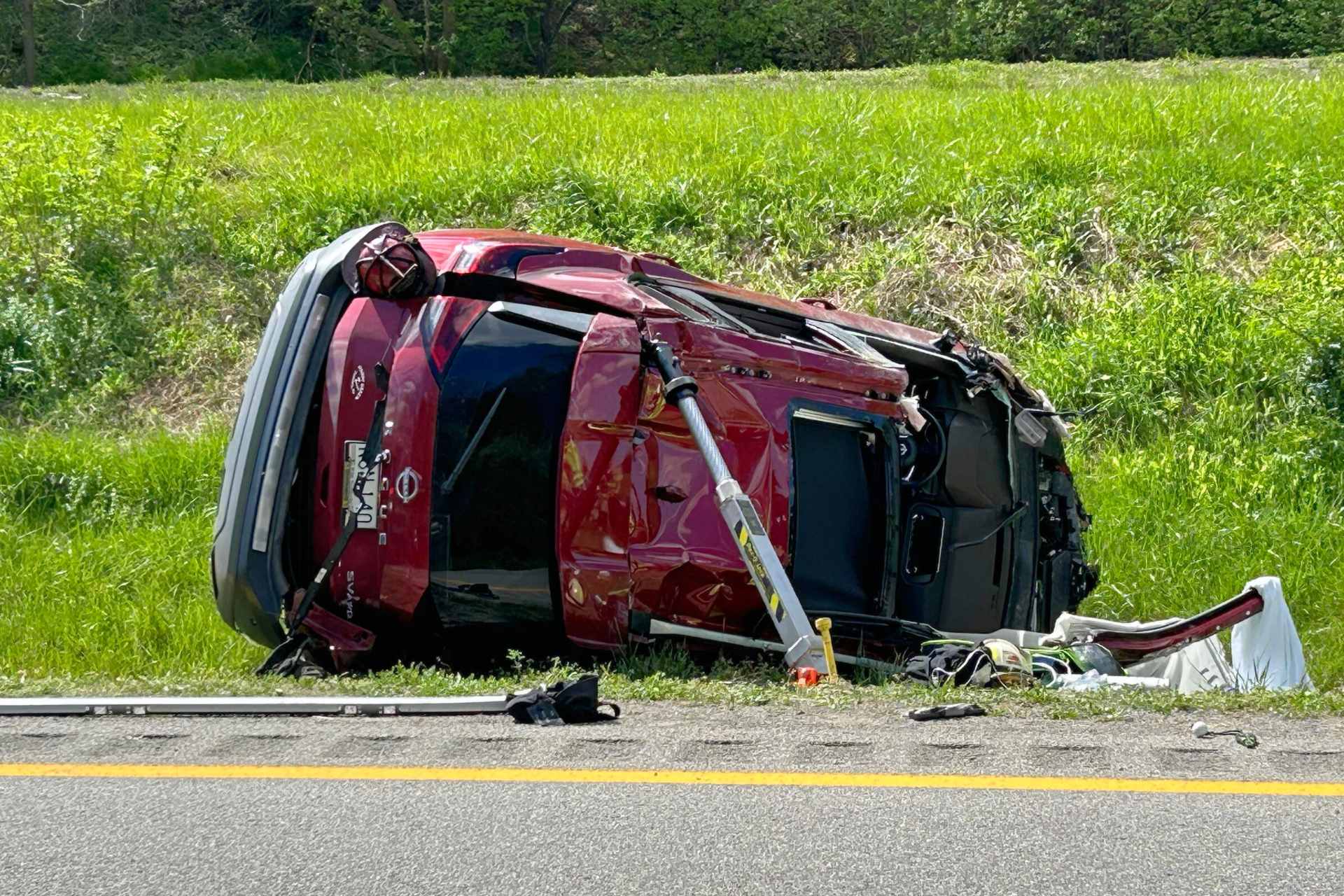CHARLESTON – One of Upshur County’s two state senators confirmed Tuesday that he remains opposed to a massive education bill currently under consideration.
Sen. Bill Hamilton, R-Upshur, said he has heard from many of his constituents, and they overwhelmingly oppose Senate Bill 451, the legislation intended to dramatically overhaul the public education system that’s currently making its way through the state Senate.
Hamilton on Tuesday estimated that if he had received 1,000 communications, “five have been for it, and the other 995 have been against it.”
And it’s not just educators who are opposed to the legislation, Hamilton told My Buckhannon in a telephone interview from Charleston: property owners and members of the Farm Bureau also aren’t big fans.
Neither is West Virginia governor Jim Justice, who said his fellow Republicans in the Senate were “creating a food fight for next to nothing” and called on cooler heads to prevail, offering his much simpler pay raise and PEIA stabilization proposal as an alternative.
The Senate’s “omnibus” education bill, as it’s come to be called because it combines a wide array of elements into a single bill, totals nearly 150 pages. Among other things, the bill would:
- increase maximum class sizes,
- allow charter schools to receive taxpayer funds,
- permit school boards to increase property taxes without a public levy vote,
- use public funds to pay for students who attend private school through educational savings accounts,
- limit the unions’ ability to collect dues from members,
- provide pay raises to school employees,
- allow certain in-demand teaching positions to receive extra funding,
- fund all school districts as if they have a minimum of 1,400 students,
- prevent teachers from being paid during a work stoppage and
- allow school employees to bank sick days.
The bill was introduced Thursday in the Senate Education Committee by chair and lead sponsor Sen. Patricia Rucker, R-Jefferson. It passed the committee on party lines the next day.
On Saturday, Hamilton announced he would not be supporting the bill unless it changed substantively.
“Several people asked me today, ‘Is the Omnibus Education Bill truly education reform or revenge for the 2018 walkout?’” Hamilton wrote, referring to the nine-day teachers’ strike that transpired in 2018 when school personnel rallied for better pay and a permanent fix to Public Employees Insurance Agency funding woes.
Justice, too, alluded to the idea that the bill is payback for last year’s dispute, when teachers frequently clashed with Senate president Mitch Carmichael, R-Jackson.
“[This is] a dog’s mess for the sake of creating a dog’s mess to hit back,” Justice said.
On Tuesday, Hamilton told My Buckhannon he still does not support the bill as it is written. However, he will continue to analyze the measure as it moves forward, noting that one item under discussion is to remove the increased class size caps.
“That’s a start,” he told My Buckhannon. “I’ll consider the amendments that are made to it, but I’m not offering any amendments [myself].”
As written, the bill would increase class sizes from a maximum of 28 students to 31 students in first through sixth grades.
“If it has anything to do with charter schools or savings accounts, I’m not in favor of that,” Hamilton added. “I’ve even been contacted by people with the Farm Bureau and landowners who are worried about board of education members being able to increase levy rates.”
The senator said he wasn’t sure exactly how the bill had been crafted or who wrote it.
“I have no idea,” he said.
In fact, Hamilton said Sen. Paul Hardesty, D-Logan, had earlier in the day questioned why state educators were not consulted when crafting the bill, noting that the senators who were involved seemed to have limited experience with public education.
Rucker, for instance, homeschooled her five children, according to an article on the ALEC website in which she was named the “State Legislator of the Week” last February.
ALEC is a national conservative organization based in Arlington, Va.
In his floor speech, Hardesty implied that outside groups were the driving force behind the legislation, saying he found parts of the bill “verbatim” by simply searching online.
And although he won’t support the bill unless it’s significantly changed, Hamilton did vote yes on a procedural motion Monday that will alter the way the bill is considered. Normally, the bill would be taken up by the Senate Finance Committee — nine Republicans (including Hamilton) and seven Democrats — as it was in the education committee.
Now — in a parliamentary procedure that has been used just twice before, in 1917 and 1961 — the bill will be sent straight to a Committee of the Whole, essentially all 34 senators. If approved, it would go to the Senate floor and be heard by those same 34 senators.
Carmichael advocated for the procedural motion, saying in a press release Monday the move would make the bill more transparent to the full Senate.
“There is no question that our educational system needs critical reform, and it needs reform right now,” reads a release on Carmichael’s legislative web page. “An issue of this magnitude should not have input from only members of the Education and Finance Committees. It should have the input of all members of the Senate as we work toward our shared goal of improving student achievement across the board, at all grade levels, in all areas of the state.
“We believed the Committee of the Whole served as the most open, transparent way to conduct the thorough vetting of this piece of important legislation.”
Critics, however, noted Carmichael only took the extraordinary step after two Republicans on the finance committee opposed the bill — Hamilton and Sen. Kenny Mann, R-Monroe — meaning it likely would have died there.
Hamilton said he’d been asked why he voted to bypass the committee on which he serves.
“I’ve been questioned on that by two or three teachers, but I explained I just voted yes on the procedural motion,” he said. “I voted with the president of the Senate (Carmichael). I backed my chair’s procedural motion, but that didn’t have anything to do with the vote on the bill.”
So, does Hamilton believe Senate Bill 451 will ultimately prevail?
Not without substantive changes, he said.
“I know myself and one other Republican (Mann) have said we’re going to vote against the bill unless it changes and a lot of the bad things are taken out,” Hamilton said. “Of course, it’s our opinion that those things are bad.”
Hamilton said it’s unlikely other public employees who don’t work in the public school system would show support for a bill to which educators were so vehemently opposed.
“The service personnel and the correctional workers and the state police – not one of them are willing to throw public education under the bus just to get a 5 percent raise,” Hamilton said. “The number one thing when you look at that bill you have to ask is, are the things in this bill germane to one another?”
That’s important because the constitutionality of the bill could be challenged if some parts of the bill — like a pay raise — are determined to be unrelated to other parts — like educational savings accounts.
The bill is specifically crafted to be ‘non-severable’ — meaning if the courts overturn one section, the entire measure would become void.
Like the governor, Hamilton said he likes some of the things in the bill, but feels those are interspersed with other parts that make it unlikely to be approved.
“It’s got a couple good things that we could improve on, but the major six or seven items don’t pass muster,” he added. “If we were to vote on it today, we would pass it to the House of Delegates by one vote, and I don’t think the House of Delegates is going to take the bill up, or if they did, they would gut most of what’s in it.”
In addition to Hamilton, My Buckhannon reached out to Sen. Greg Boso, R-Nicholas, who also represents the 11th Senatorial District. However, Boso’s secretary said that due to a family medical emergency, Boso would not comment on the bill because he hadn’t reviewed it yet, although he planned to Tuesday evening.
During a live-streamed, last-minute press conference Tuesday afternoon, Justice urged legislators to rethink Senate Bill 451 and instead consider a bill he had proposed which has provisions for pay raises and setting aside $150 million from the state’s budget surplus to patch up PEIA.
“All we’re doing today is creating a mess where a mess doesn’t need to exist,” Justice told reporters. “I wish we would look at these items individually.”
Although Justice said some aspects of the bill “could be really good things,” he said he’s “absolutely against” gutting the public school system in favor of funding charter schools.
“We have not by any means perfected our public schools, and for crying out loud, we need to concentrate on our public schools,” a visibly annoyed Justice said. “This just irritates the peanuts out of me … I have worked my ever-loving butt off, and it’s a great big butt. Our state is – like it or not – it’s booming … and we don’t need uncertainty, and we don’t need to create a food fight for next to nothing.”
“For God’s sake, let’s quit throwing rocks at each other,” the governor continued. “The whole thing is one word to me – ‘Why?’ Why are we doing this?”
When pressed, the governor said he would veto the bill as currently written. The Senate, then, would have the option to override his veto — a process that in West Virginia requires just a simple majority vote.
When asked by West Virginia Metro News about the governor’s veto threat, Carmichael responded, “We just have to deal with that. In this state we have options for mistakenly-vetoed bills. We’ll just approach it as we go through the process.”
David Perry, the president of the state board of education, said in a press release that the bill would deal “a devastating financial blow to the majority of children in this state that attend public school,” pointing specifically to the taxpayer-funded educational savings accounts for private school students.
“The West Virginia Board of Education’s finance committee recently found that West Virginia’s state aid funding formula is grossly underfunded and the ESA program would further exacerbate the problem,” he said.
He also took issue with the sections of the bill dealing with charter schools.
“It is entirely disingenuous for legislators to continually say they value and respect teachers, while at the same time advancing legislation that includes no requirement that individuals providing instruction at public charter schools be certified teachers,” Perry said. “The bill, as currently constructed, allows public funds to be diverted entirely to private entities and will further marginalize our less-fortunate populations.”
The state board of education called an emergency meeting Wednesday morning.
“Given the events that have transpired to date regarding Senate Bill 451, Comprehensive Education Reform, and because of the unprecedented, rapid pace and process this bill is following, I feel it is imperative the State Board of Education weigh in on this matter,” Perry said.
A fiscal note on the bill estimated the measure will cost state taxpayers more than $136 million, although “we were unable to quantify cost or potential cost savings related to certain portions of the proposed legislation.”
After Justice’s press conference, Carmichael responded to the question of ‘Why?’
“‘Why’ is our kids,” Carmichael said, according to W.Va. Metro News. “Our kids and our children in this state, unfortunately perform — student achievement-wise — at the lowest in the nation. We care about our kids.”




























